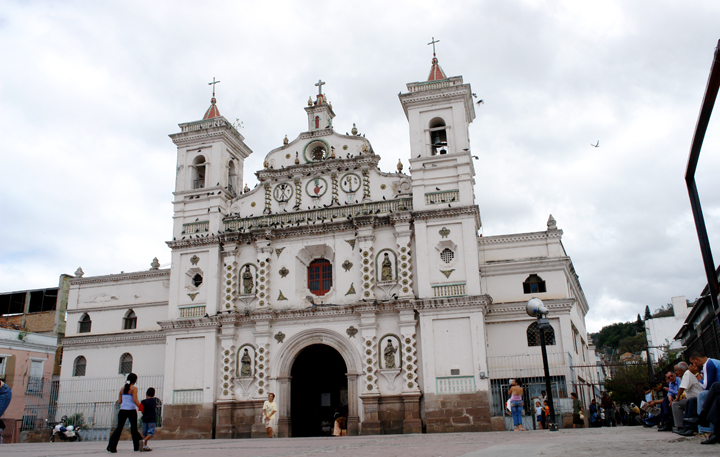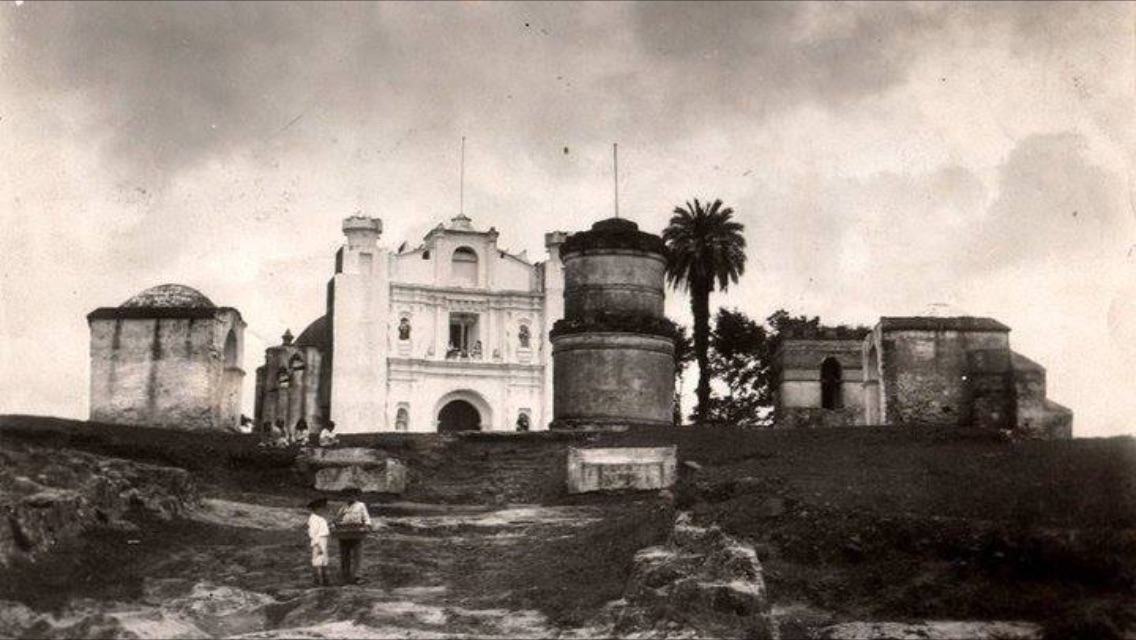|
Philip S.W. Goldson International Airport
Philip S. W. Goldson International Airport is an airport that serves the nation of Belize's largest city, Belize City along the eastern coast of Central America. It was named after politician Philip S. W. Goldson, who died in 2001. The airport is about 30 minutes drive from Belize City's centre, in Ladyville. The airport is at an elevation of , which means both the airport and the entirety of Belize City are at risk of serious flooding due to its low elevation and coastal location. For this reason, Belize's capital has been moved to Belmopan, but the airport remains the largest and busiest in the country. With stable passenger growth, Philip S. W. Goldson International Airport is currently the fifth busiest airport in Central America. History Originally known as Belize International Airport, the airport was renamed in honor of Philip S. W. Goldson on 7 February 1988. Military use Due to the Belizean–Guatemalan territorial dispute, Philip S. W. Goldson International Air ... [...More Info...] [...Related Items...] OR: [Wikipedia] [Google] [Baidu] |
Belize City
Belize City is the largest city in Belize and was once the capital of the former British Honduras. According to the 2010 census, Belize City has a population of 57,169 people in 16,162 households. It is at the mouth of the Haulover Creek, which is a distributary of the Belize River. The Belize River empties into the Caribbean Sea from Belize City on the Philip Goldson Highway on the coast of the Caribbean. The city is the country's principal port and its financial and industrial hub. Cruise ships drop anchor outside the port and are tendered by local citizens. The city was almost entirely destroyed in October 1961 when Hurricane Hattie swept ashore. It was the capital of British Honduras (as Belize was then named) until the government was moved to the new capital of Belmopan in 1970. History Belize City was founded as "Belize Town" in 1638 by English lumber harvesters. It had been a small Maya city called Holzuz. Belize Town was ideal for the English as a central post b ... [...More Info...] [...Related Items...] OR: [Wikipedia] [Google] [Baidu] |
Army Air Corps (United Kingdom)
The Army Air Corps (AAC) is a component of the British Army, first formed in 1942 during the Second World War by grouping the various airborne units of the British Army. Today, there are eight regiments (seven Regular Army and one Reserve) of the AAC as well as four Independent Flights and two Independent Squadrons deployed in support of British Army operations around the world. Regiments and flights are located in the United Kingdom, Brunei, Canada, and Germany. Some AAC squadrons provide the air assault elements of 16 Air Assault Brigade through Joint Helicopter Command. History First formation: 1942–1949 The British Army first took to the sky during the 19th century with the use of observation balloons. In 1911 the Air Battalion of the Royal Engineers was the first heavier-than-air British military aviation unit. The following year, the battalion was expanded into the Military Wing of the Royal Flying Corps which saw action throughout most of the First World War unt ... [...More Info...] [...Related Items...] OR: [Wikipedia] [Google] [Baidu] |
Panama City, Panama
Panama City ( es, Ciudad de Panamá, links=no; ), also known as Panama (or Panamá in Spanish), is the capital and largest city of Panama. It has an urban population of 880,691, with over 1.5 million in its metropolitan area. The city is located at the Pacific entrance of the Panama Canal, in the province of Panama. The city is the political and administrative center of the country, as well as a hub for banking and commerce. The city of Panama was founded on 15 August 1519, by Spanish conquistador Pedro Arias Dávila. The city was the starting point for expeditions that conquered the Inca Empire in Peru. It was a stopover point on one of the most important trade routes in the American continent, leading to the fairs of Nombre de Dios and Portobelo, through which passed most of the gold and silver that Spain mined from the Americas. On 28 January 1671, the original city was destroyed by a fire when the privateer Henry Morgan sacked and set fire to it. The city was formally ... [...More Info...] [...Related Items...] OR: [Wikipedia] [Google] [Baidu] |
Tegucigalpa
Tegucigalpa (, , ), formally Tegucigalpa, Municipality of the Central District ( es, Tegucigalpa, Municipio del Distrito Central or ''Tegucigalpa, M.D.C.''), and colloquially referred to as ''Tegus'' or ''Teguz'', is the capital and largest city of Honduras along with its sister city, Comayagüela. Claimed on 29 September 1578 by the Spaniards, Tegucigalpa became the country's capital on October 30, 1880, under President Marco Aurelio Soto, when he moved the capital from Comayagua. The Constitution of Honduras, enacted in 1982, names the sister cities of Tegucigalpa and Comayagüela as a Central District to serve as the permanent national capital, under articles 8 and 295. After the dissolution of the Federal Republic of Central America in 1841, Honduras became an individual sovereign nation with Comayagua as its capital. The capital was moved to Tegucigalpa in 1880. On January 30, 1937, Article 179 of the 1936 Honduran Constitution was changed under Decree 53 to establish Te ... [...More Info...] [...Related Items...] OR: [Wikipedia] [Google] [Baidu] |
Guatemala City
Guatemala City ( es, Ciudad de Guatemala), known locally as Guatemala or Guate, is the capital and largest city of Guatemala, and the most populous urban area in Central America. The city is located in the south-central part of the country, nestled in a mountain valley called Valle de la Ermita ( en, Hermitage Valley). The city is the capital of the Municipality of Guatemala and of the Guatemala Department. Guatemala City is the site of the Mayan city of Kaminaljuyu, founded around 1500 BC. Following the Spanish conquest, a new town was established, and in 1776 it was made capital of the Kingdom of Guatemala. In 1821, Guatemala City was the scene of the declaration of independence of Central America from Spain, after which it became the capital of the newly established United Provinces of Central America (later the Federal Republic of Central America). In 1847, Guatemala declared itself an independent republic, with Guatemala City as its capital. The city was originally located ... [...More Info...] [...Related Items...] OR: [Wikipedia] [Google] [Baidu] |
Vickers Viscount
The Vickers Viscount is a British medium-range turboprop airliner first flown in 1948 by Vickers-Armstrongs. A design requirement from the Brabazon Committee, it entered service in 1953 and was the first turboprop-powered airliner. The Viscount was well received by the public for its cabin conditions, which included pressurisation, reductions in vibration and noise, and panoramic windows. It became one of the most successful and profitable of the first post-war transport aircraft; 445 Viscounts were built for a range of international customers, including in North America. Development Origins The Viscount was a response to the 1943 Brabazon Committee's proposed Type II design for a post-war small medium-range pressurised aircraft to fly less-travelled routes, carrying 24 passengers up to 1,750 mi (2,816 km) at 200 mph (320 km/h).Cacutt 1989, pp. 323–333. During discussions between the committee and Vickers' chief designer, Rex Pierson, Vickers adv ... [...More Info...] [...Related Items...] OR: [Wikipedia] [Google] [Baidu] |
Douglas DC-4
The Douglas DC-4 is an American four-engined (piston), propeller-driven airliner developed by the Douglas Aircraft Company. Military versions of the plane, the C-54 and R5D, served during World War II, in the Berlin Airlift and into the 1960s. From 1945, many civil airlines operated the DC-4 worldwide. Design and development Following proving flights by United Airlines of the DC-4E, it became obvious that the 52-seat airliner was too inefficient and unreliable to operate economically and the partner airlines, American Airlines, Eastern, Pan American, Trans World and United, recommended a lengthy list of changes to the design. Douglas took the new requirements and produced an entirely new, much smaller design, the DC-4A, with a simpler, still unpressurized fuselage, Pratt & Whitney R-2000 Twin Wasp engines, and a single fin and rudder. A tricycle landing gear was retained. With the entry of the United States into World War II, in December 1941, the United States Army Air Forc ... [...More Info...] [...Related Items...] OR: [Wikipedia] [Google] [Baidu] |
Managua
) , settlement_type = Capital city , motto = , image_map = , mapsize = , map_caption = , pushpin_map = Nicaragua , coordinates = , subdivision_type = Country , subdivision_name = , subdivision_type1 = Department , subdivision_type2 = Municipality , subdivision_name1 = Managua , subdivision_name2 = Managua , established_title = Founded , established_date = 1819 , established_title2 = Elevated to Capital , established_date2 = 1852 , government_type = , leader_title = Mayor , leader_name = Reyna Rueda , leader_title1 = Vice Mayor , leader_name1 = Enrique Armas , area_footnotes ... [...More Info...] [...Related Items...] OR: [Wikipedia] [Google] [Baidu] |

_(14597444780).jpg)




